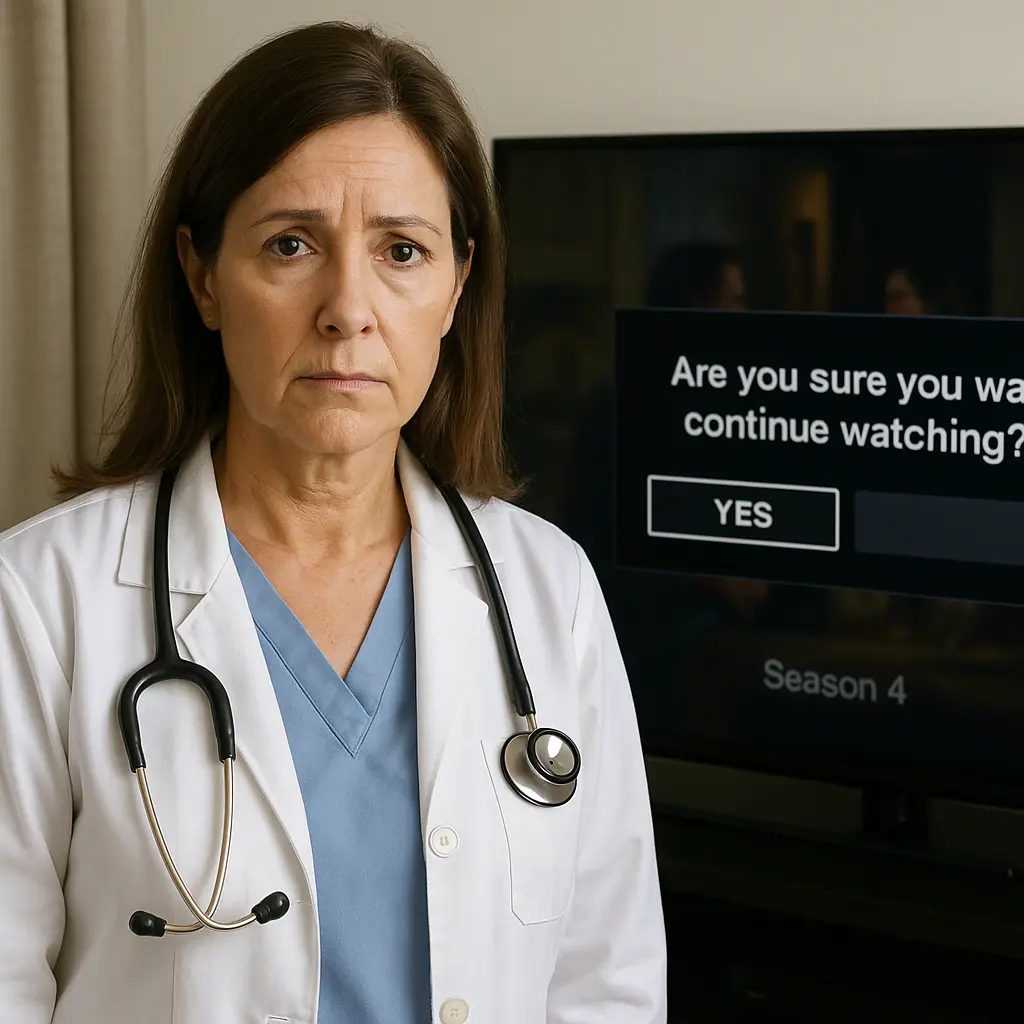Doctors Recommend Eight Hours of Sleep, Netflix Asks if They’re Sure
In a rare clash between the medical establishment and the entertainment industry, public health officials reaffirmed this week that adults should strive for at least eight hours of uninterrupted sleep per night — a claim immediately questioned by streaming giant Netflix, which issued a pop-up asking if doctors were “absolutely sure about that.”
The Centers for Disease Control and Prevention announced the findings on Tuesday, citing extensive research linking adequate rest to improved immune function, mental health, and longevity. Netflix, however, responded within minutes, releasing a counter-statement embedded directly into users’ television screens, which read: “Are you really, really positive you want to do that instead of watching season four?”
“Science tells us that sleep is fundamental to human wellbeing,” explained Dr. Amelia Kerr, a sleep researcher at Stanford University. “If you consistently get less than seven or eight hours, you increase your risk for depression, heart disease, and accidents. Anything less is essentially slow self-destruction.” Seconds later, the television behind her interrupted the press conference with an automated prompt from Netflix asking, “Still awake, doc? Want to see just one more clip to take the edge off?”
Company representatives defended their intervention, claiming it was merely due diligence. “We completely respect the medical community,” said Netflix spokesperson Calvin Loudermilk. “We’re just asking the same question America asks itself every night around 11:45 p.m.: Do you want to sleep, or do you want to see if two fictional coworkers finally kiss after nine hours of unresolved tension? We think the answer is worth double-checking.”
A recent Gallup study revealed that 72% of Americans watch Netflix until the moment their physical body collapses, while an additional 14% technically “fall asleep” but continue hearing the dialogue of a murder documentary in their dreams. The remaining 14% reportedly “lied on the survey because it was too embarrassing.”
Local subscriber Mariah Jenkins confirmed she had been caught in this limbo repeatedly. “I went to bed at 10 o’clock last night, I swear. Then my TV asked me if I was still watching, and I thought, ‘Well, now I am watching.’ Next thing I know it’s 3 a.m. and some Icelandic detective is screaming at his brother about fish prices.”
Netflix engineers also claim to be working on new technology to support “healthy, doctor-approved bingeing.” Features under development include an “Are You Sure You’d Rather Sleep Than Experience Joy?” button, an autoplay function calibrated to bypass feelings of guilt, and an experimental pillow that projects live content directly onto the closed eyelids of sleeping subscribers.
While public health authorities expressed frustration, some admitted defeat might be near. “Every time we tell people to sleep, Netflix drops another gritty limited series or a perfectly engineered true-crime documentary,” said CDC official Karen Lund. “We can’t compete with Scandinavian noir or prestige miniseries about disgraced billionaires. We’re doctors, not miracle workers.”
For now, experts continue to insist that eight hours of rest is critical for the body’s proper functioning. Netflix officials, however, remain skeptical, vowing to “circle back” in about five seconds after automatically loading the next episode anyway.

